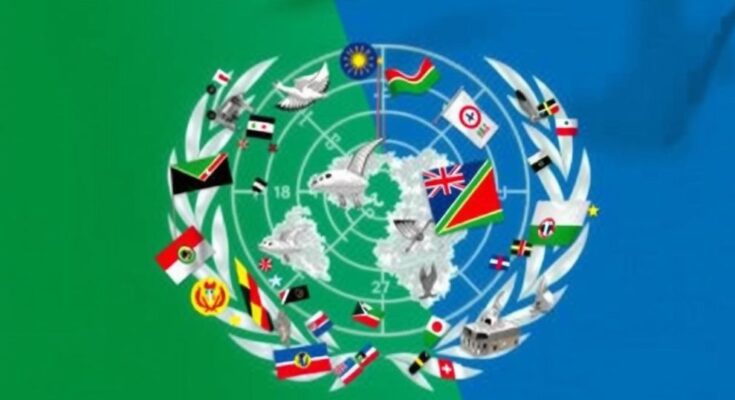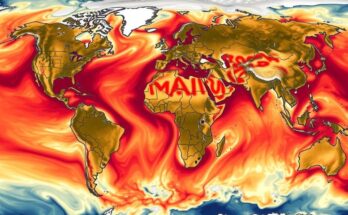Vanuatu’s climate change case at the ICJ aims to establish a legal and moral precedent regarding states’ obligations to mitigate climate change impacts. Supported by over 130 nations, the initiative seeks an advisory opinion on legal responsibilities, emphasizing the plight of small island nations disproportionately affected by climate change. Public hearings begin on December 2, as Vanuatu hopes for a ruling that will enhance their calls for climate finance.
The Pacific island nation of Vanuatu believes that the climate change case it has brought before the United Nations court could serve as a pivotal moment for international climate action, according to Arnold Kiel Loughman, Vanuatu’s Attorney-General. In an interview, Loughman emphasized that the aim of this case at the International Court of Justice (ICJ) is not to assign blame but to achieve a ruling with significant moral weight that transcends geographical borders. He stated, “It’s not about suing a particular state or a particular group of states. It’s also not just about the small island countries of the Pacific or the Caribbean or anywhere. It’s for the global community.” This initiative, which has garnered the support of over 130 nations, seeks a legal advisory opinion regarding the obligations of states to prevent human-induced climate change and the ramifications of failure to address this issue. Although Vanuatu itself is a small nation of approximately 330,000 people, it has been proactive in advocating for meaningful climate action, including lobbying for an emissions levy on global shipping. Notably, major emitters such as China and the United States did not support the U.N. General Assembly resolution that called for the ICJ’s advisory opinion, and the court’s eventual ruling will be non-binding. Public hearings for the case will commence on December 2, following the submission of a record 91 written statements from various governments and organizations, illustrating the case’s significant global interest. Loughman noted that both sides are already familiar with each other’s arguments, which are expected to include defenses against liability for climate change impacts. The situation exemplifies the broader struggle of Pacific island nations, whose contributions to global greenhouse gas emissions are negligible, yet they face existential risks from climate change, such as rising sea levels and intensified tropical storms. Loughman expressed frustration over the lack of tangible climate finance provided to these vulnerable nations, stating that repeated negotiations have yielded insufficient outcomes. He articulated hope that an ICJ ruling would confer moral authority to the calls for climate funding, arguing, “A decision coming from such an institution can’t be ignored. It carries weight.” Furthermore, he highlighted the pressing findings of the U.N. Intergovernmental Panel on Climate Change, which affirms the human responsibility for global warming. In summary, Vanuatu’s case at the ICJ encapsulates the urgent need for clarifying legal responsibilities regarding climate change while underlining the vulnerabilities of small island nations in the global dialogue on climate action.
The case filed by Vanuatu at the International Court of Justice represents a significant legal and moral challenge to the global community regarding climate change accountability. It arises from the stark realities faced by Pacific island nations, which, despite their minimal contribution to greenhouse gas emissions, are among the first to encounter the severe impacts of climate change, including rising sea levels and increased frequency of natural disasters. The move is significant as over 130 nations have supported Vanuatu’s call for clarity on existing international obligations concerning climate action, seeking a ruling that would carry moral authority rather than impose legal penalties. This advisory opinion might also influence future international negotiations and funding efforts directed at vulnerable nations.
In conclusion, Vanuatu’s pursuit of an advisory opinion from the ICJ highlights the pressing need for global acknowledgment of climate change responsibilities and the unique vulnerabilities faced by small island nations. The case may not only clarify legal obligations but also empower these nations in their call for climate finance and action within international forums. The engagement of numerous countries in this case underscores a collective recognition that climate change is a global issue necessitating cooperative solutions.
Original Source: www.benarnews.org




